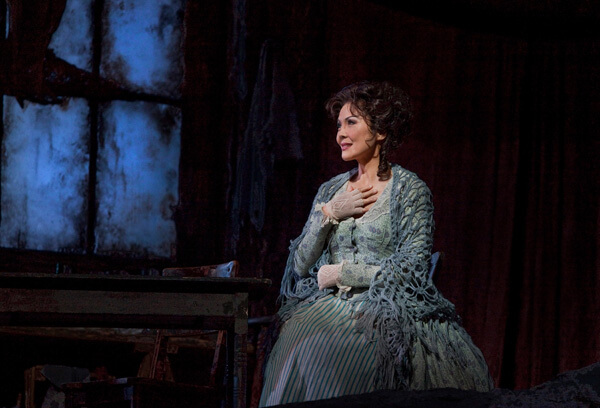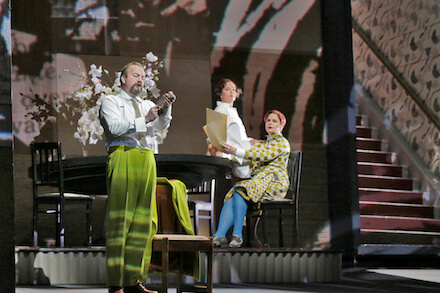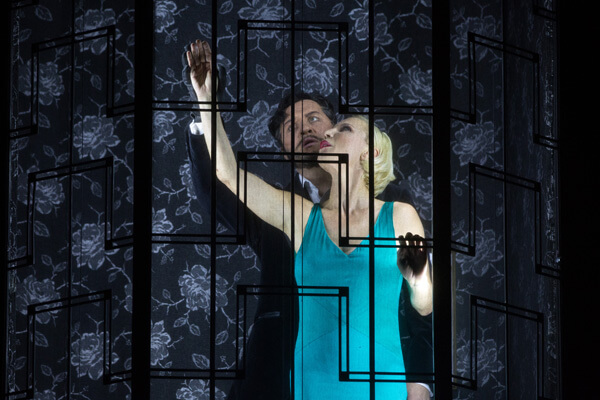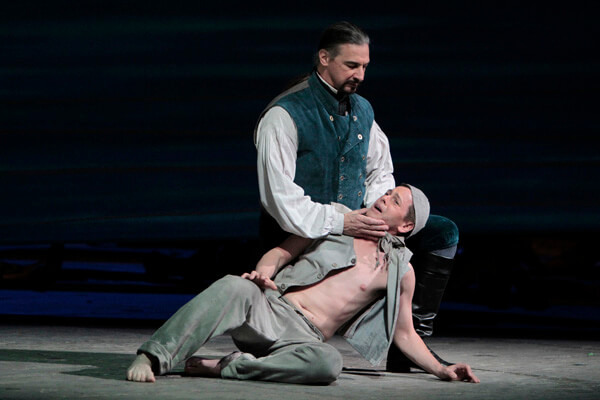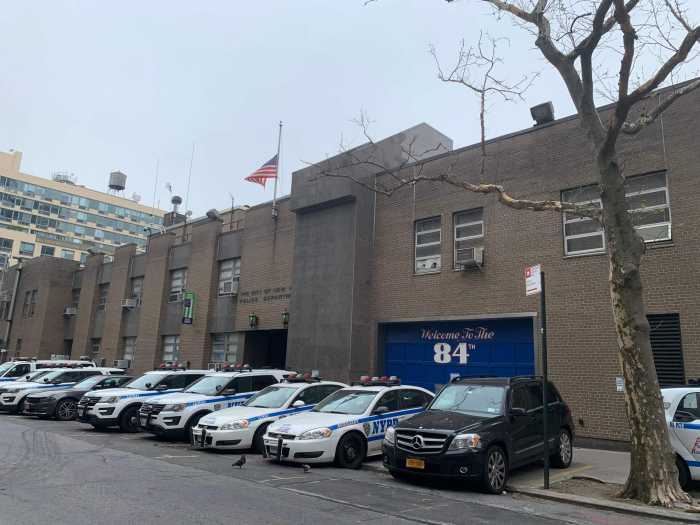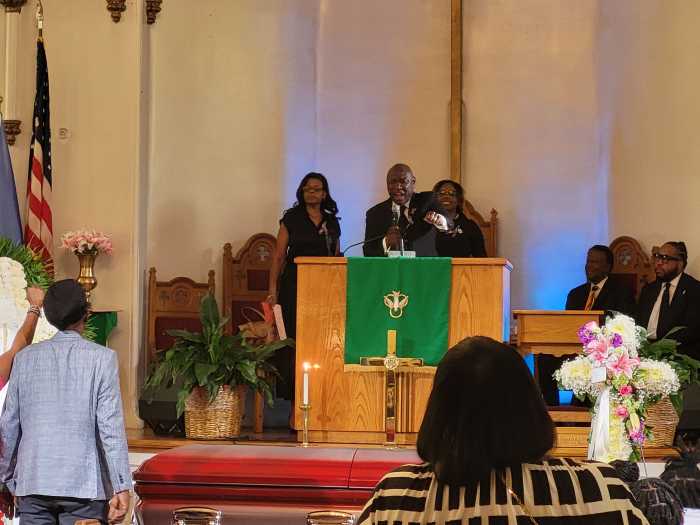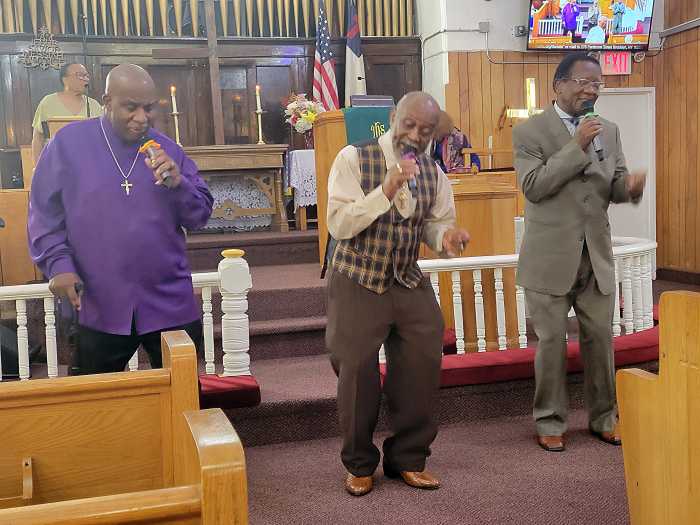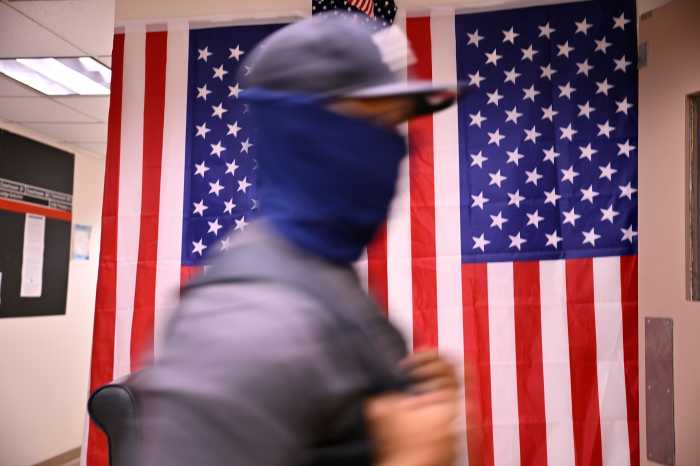Tenors do not need to come in threes, but recent weeks have seen three major exponents of high-voiced repertory gracing local stages. One of these — the late-blooming Polish star Piotr Beczala — would be on anyone’s list of great operatic singers active today. The other two — Russell Thomas and Bryan Hymel — are young Americans, each with a few international successes and an increasing prominence in major theaters’ plans.
Thomas, who started at the Met in tiny roles, is still making his way, but his dark-hued voice is reliable and powerful, if short on “wine and sunshine” timbre. Still, he’s made creditable attempts at Verdi leads at the Met and Covent Garden and scored strongly in “I masnadieri” at Washington Concert Opera earlier this season. He appeared January 17 alongside the capable mezzo Elizabeth Bishop in the New Jersey Symphony concert in Princeton, singing Mahler’s “Das Lied von der Erde” under music director Jacques Lacombe.
Russell Thomas, Piotr Beczala, and Bryan Hymel in distinguished New York appearances
Musical New Yorkers should keep an eye on the NJSO’s schedule — the ensemble showed itself very accomplished on this occasion, not only in Mahler’s lush sound world but in Tan Dun’s new and very smartly conceived companion piece “Earth Concerto,” getting its US première. Using his trademark blend of rhythmic daring and original sonic textures (here supplied by expert wind and percussion players), Dun’s tripartite piece plays off of the thematic chinoiserie inherent in Mahler’s three songs for his tenor soloist. It deserves wide circulation.
“Das Lied” itself also came off well, with only occasional brass problems; the flutes and oboe excelled. Thomas projected his voice steadily over Mahler’s sometimes fearsome orchestration, finding some places to lighten the timbre. He still needs to acquire the verbal acuity to make something more of the difficult, clamorous text, but the voice itself is very sound.
Bishop, with her considerable Wagnerian experience (a Met Venus and DC Brangaene stand out), shaped her phrases with more point. Though her soft-grained voice tends to lack chest tone coloration, she made something beautiful and profound of the concluding “Der Abschied” — some of the best singing I’ve heard all season. Lacombe calls on Thomas again for NJSO’s Verdi “Requiem” April 3-6, in Newark, Princeton, and Morristown.
I’m glad the Met is finally filming Günther Schneider-Siemssen’s fairy-tale sets for DvoÅ™ák's “Rusalka,” but they’re looking a mite tired, and leading lady Renée Fleming, alas, sounds much reduced vocally in one of her best roles — victims, like Desdemona, have always suited her best. Perhaps with a body mic for the February 8 HD screening she’ll be able to project more in her diminished middle range than on opening night, January 23. Some of Fleming’s high notes still had their familiar quality, but she ran out of steam for the great, tragic finale and she kept her music s-l-o-w and her action generalized.
Young and pleasingly out conductor Yannick Nézet-Séguin was — as ever — widely praised, but though the orchestra was sonorous, he brought little idiomatic understanding to this wonderful score and tended to blare. Emily Magee did not shine in the tough, short role of the Foreign Princess, while Dolora Zajick continues to revel in the Jezibaba’s range extremes and bluff humor, even though her middle voice displayed a worrying hole. John Relyea, whose Met career started brilliantly in 2000, has sounded muffled of late. Even after some vocal rest, his Water Sprite lacked some oomph.
The evening was dominated by Beczala’s Prince, aptly sexy and — well — princely in demeanor and both sensitive and exciting to hear. If you’ve never seen this ravishing opera, go for his sake.
Hymel had the most conventional assignment: Pinkerton, the feckless American sailor who through his cultural insensitivity causes “Madama Butterfly”’s tragedy. This important but not very long role was to have been his Met debut, and — as is often the case at the Met, such as with Magee — management didn’t seem to want to bring a rising singer in with something that would showcase their very best.
Fortunately, last season Hymel had jumped in for Jonas Kaufmann in London in the murderously tough part of Énée in Berlioz’ “Les Troyens” — the kind of high-lying challenge the Cajun tenor thrives on. He did a follow-up a few months later by jumping headfirst into saving the Met’s “Troyens” and thriving, all captured on an HD broadcast. Only the greatest singers can manage Énée, while almost any standard issue tenor can tackle Pinkerton — as the Met seems anxious to prove in its assignments of the role for the rest of the season to three different journeymen.
Hymel doesn’t command particularly golden, italianate sound in the middle voice, but on January 28 the top voice proved thrilling and his overall vocal security is welcome. He also worked hard and successfully to give nuanced touches to the naive young man’s behavior — no mere swaggering and posturing.
His Butterfly was a tall South African named Amanda Echalaz, who’s been making waves in the UK in verismo repertory. Her performance was pleasing and “solid” rather than moving and accomplished, though the underlying effects of Belasco’s play and Puccini’s score carry any decent soprano pretty far. Echalaz’ middle voice is quite resplendent and capable of dynamic shading, and proved welcome after Fleming’s virtual lack of resonance in the same vocal area. Less winning were her choked lower range and an often slightly — or not so slightly — shrill top, with B flats clipped. She managed a cogent reading of Cio-Cio-San as a naive girl, adding some touches new to the visually striking if sometimes over-busy Mingella production.
Elizabeth de Shong (Suzuki) sang beautifully and sympathetically, though ceding vocal dominance in the great trio to Hymel. The other satisfying, healthy sounds came from Alexey Lavrov as the frustrated suitor Yamadori. Scott Hendricks acted Sharpless soundly but the voice seemed worn and unspecial. New leads — of most potential excitement, Kristine Opolais — take over the March run.
David Shengold (shengold@yahoo.com) writes about opera for many venues.


